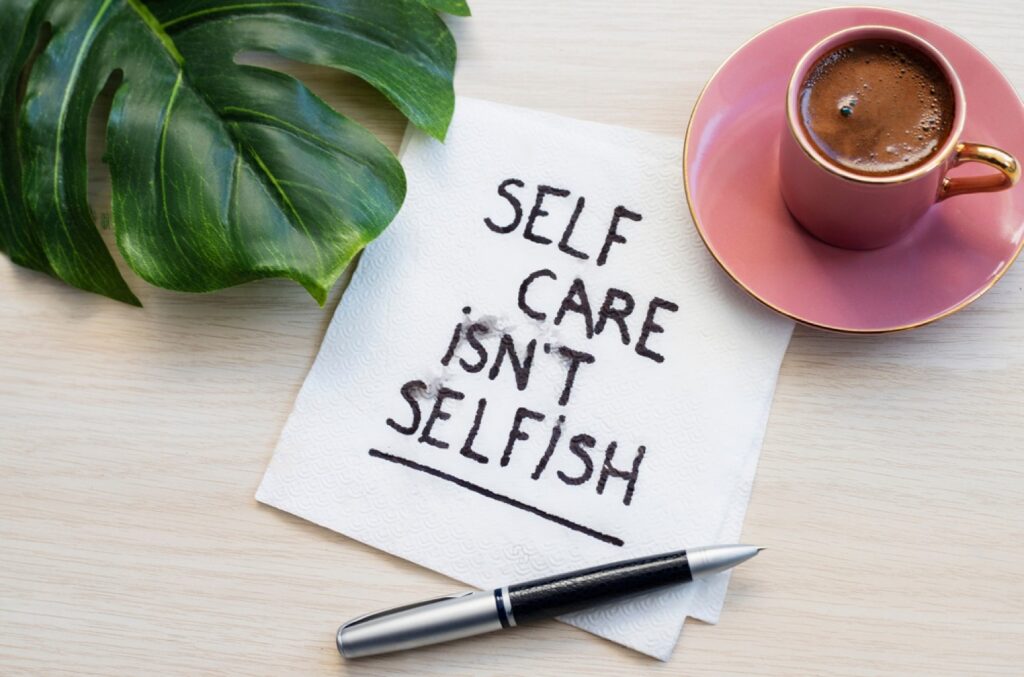Living with chronic diseases can result in challenges that extend far beyond the physical symptoms. The constant management, uncertainty, and potential limitations associated with conditions like diabetes, hypertension, heart disease, or arthritis can significantly impact mental well-being.
Finding effective strategies for coping with chronic diseases is necessary if you want to handle the emotional ups and downs and maintain a good quality of life.
If you or a loved one is dealing with a chronic condition, this article provides five essential mental health tips to help you on this journey.
The Mental Toll of Coping with Chronic Diseases
Before jumpng into the tips, it’s important to acknowledge the mental weight that often accompanies chronic health conditions.
Feelings of frustration, sadness, anxiety, grief, or even anger are completely normal. The daily demands of medication schedules, doctor’s appointments, lifestyle changes, and managing symptoms can be exhausting.
Recognizing these emotional challenges is the first step towards effectively coping with chronic diseases.
1. Develop a Positive Mindset
Maintaining a positive outlook while managing long-term health issues is challenging, but it’s a powerful tool. It’s not about ignoring the reality of your condition. Rather, it’s about actively approaching life with resilience and hope, a key aspect of coping with chronic diseases. here are a few things that can help in this regard;
- Practice Gratitude: Nothing helps with a positive mindset like practicing gratitude. Make a daily habit of noticing the good things, however small. Be thankful for moments without pain, supportive relationships, a sunny day, or achieving a small health goal. This shifts focus away from the difficulties.
- Stay Connected: Isolation can worsen the mental health impact of chronic conditions. Build and nurture a strong support network. Share your feelings with trusted friends and family. Connecting with others who understand is vital.
- Challenge Negative Thoughts: Chronic diseases can easily lead to negative self-talk (“I can’t do anything,” “This will never get better”). Learn to identify these thoughts and actively challenge them with more realistic and balanced perspectives.
2. Master Stress Management Techniques
Chronic diseases often introduce numerous stressors – managing symptoms, financial worries, changes in abilities, and uncertainty about the future. Effective stress management is therefore fundamental to coping with chronic diseases.
- Mindfulness & Meditation: Practices like mindfulness and meditation help anchor you in the present, reducing anxiety about what might happen. Even 5-10 minutes daily can significantly lower stress levels. Use mindfulness to navigate moments of pain or discomfort with greater calm.
- Deep Breathing Exercises: When feeling overwhelmed, simple deep breathing techniques can quickly activate your body’s relaxation response. Use this tool before stressful appointments or during moments of anxiety.
- Gentle Movement (As Appropriate): Consult your doctor about suitable physical activities. Gentle exercise like walking, swimming, or yoga can release mood-boosting endorphins and reduce stress hormones.
3. Prioritize Self-Care
When you’re managing long-term health conditions, self-care becomes non-negotiable. It’s about actively nurturing your physical and emotional needs to build resilience.
- Prioritize Restful Sleep: Quality sleep is necessary for physical healing and mental well-being. Chronic diseases can disrupt sleep, so establishing a consistent sleep schedule and a relaxing bedtime routine is vital. Discuss sleep difficulties with your doctor
- Nourish Your Body: Eating a balanced diet tailored to your specific health needs supports overall well-being and can impact mood. Work with healthcare professionals to understand the best dietary approach for your condition(s).
- Engage in Enjoyable Activities: Make time for hobbies and interests that bring you joy and relaxation. Losing yourself in an enjoyable activity provides a mental break from the demands of coping with chronic diseases.
4. Seek and Accept Support
You don’t have to navigate the challenges of chronic diseases alone. Building a strong support system is essential.
- Professional Help: Therapists or counselors experienced in health psychology can provide invaluable tools and strategies for managing the emotional impact of chronic conditions. Don’t hesitate to seek professional mental health support.
- Support Groups: Connecting with others facing similar health challenges can reduce feelings of isolation. Sharing experiences and practical tips in a support group (online or in-person) specific to your condition(s) can be incredibly comforting and empowering.
- Lean on Loved Ones: Allow trusted friends and family to help. Sometimes just talking about your feelings or accepting practical help (like assistance with chores or errands) can make a big difference.
5. Set Realistic Goals and Be Adaptable
Living with chronic diseases often means adjusting expectations and finding a new normal. Setting achievable goals is key to maintaining a sense of purpose and accomplishment.
- Break Down Goals: Large goals can feel overwhelming. Break them into smaller, manageable steps. Celebrate each small victory along the way – this builds momentum and confidence.
- Focus on Process, Not Just Outcome: Sometimes, simply sticking to your treatment plan or self-care routine is a significant achievement, regardless of the day-to-day fluctuations in your symptoms.
- Be Flexible and Adapt: Chronic diseases can be unpredictable. Be prepared to adjust your goals and plans based on how you feel. Practice self-compassion on difficult days. Flexibility will help with long-term coping with chronic diseases.
Taking the Next Step Towards Well-being
Today is World Mental Health Day, and in the spirit of this event, we’d like to remind you that you are not alone in this journey.
Remember, prioritizing your mental health is a fundamental part of managing your physical health, especially when coping with chronic diseases. You have the strength to navigate these challenges, and support is available.
If you are living with diabetes or hypertension, Healthtracka’s Flourish Care Plan offers comprehensive, convenient at-home support to ease the burden of management. This includes medication delivery, regular testing, health analysis, and access to a dedicated doctor, helping you focus more on your overall well-being. [Get a Flourish Care Plan here]





